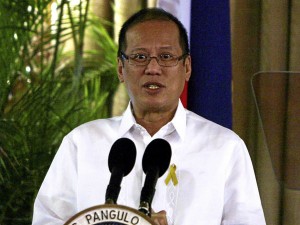Aquino may be ousted for cybercrime law, says lawmaker
Kabataan party-list Rep. Raymond Palatino, one of the complainants against newly enacted Republic Act No. 10075 or the Cybercrime Prevention Act of 2012, on Sunday said President Benigno Aquino could be impeached for enforcing the controversial law.
Palatino said the President’s insistence on the retention of the libel provisions in the law would result in the abridgement of the freedom of speech, which would made the Chief Executive liable for impeachment on the grounds of culpable violation of the Constitution and betrayal of the public trust.
Article continues after this advertisement“If Aquino is insisting that we accept the new law, not only is he violating the Constitution, he is also betraying the public’s trust, both of which are impeachable offenses,” Palatino said.
The Supreme Court is expected to tackle over 10 petitions against the cybercrime law during an en banc session tomorrow. Yet another petition will reportedly be filed Monday by Bayan Muna led by Rep. Neri Colmenares.
“We warn you P-Noy (Aquino), masquerading as a ‘clean’ President doesn’t make you unimpeachable. If you continue to betray the public’s trust, the masses are ready to call not only for your impeachment but for your ouster,” Palatino said.
Article continues after this advertisementPalatino did not say if he would initiate the impeachment complaint against the President.
Both the House and the Senate, which would act as the impeachment prosecutor and court, respectively, are dominated by Aquino allies.
The President on Friday said he did not agree that the provision on online libel should be removed and that he had to enforce the law—otherwise he could be “impeached for dereliction of duty.”
Sen. Miriam Defensor Santiago, chairperson of the Senate committee on constitutional amendments and revision of laws, predicted the Supreme Court would declare it unconstitutional, citing the “overbroad and too vague” language used in the law’s provisions.
Senate President Juan Ponce Enrile urged the public to let the Supreme Court deal with the Cybercrime Prevention Act.
“Let’s leave it in the hands (“ipaubaya na natin”) of the Supreme Court. That’s how the system works. Besides, we (lawmakers) cannot say we are always right. We are not gods. If something goes wrong in the executive or legislature, there is the Constitution and the Supreme Court to make a decision,” Enrile said in Filipino.
But Enrile insisted that the Senate observed proper procedures when it debated on and eventually approved its version of the cybercrime bill.
However, he lamented that he was not able to fully monitor the debates that happened in December.
Enrile admitted he was not an expert on the Internet or information technology. Also, he said he was too busy preparing for his role as presiding officer of the impeachment trial of Chief Justice Renato Corona when the debates took place.
Earlier reports said that during the December interpellations, the debates centered on the definition and penalties for sex-related offenses like cybersex. The online libel provision was not discussed extensively at the time.
